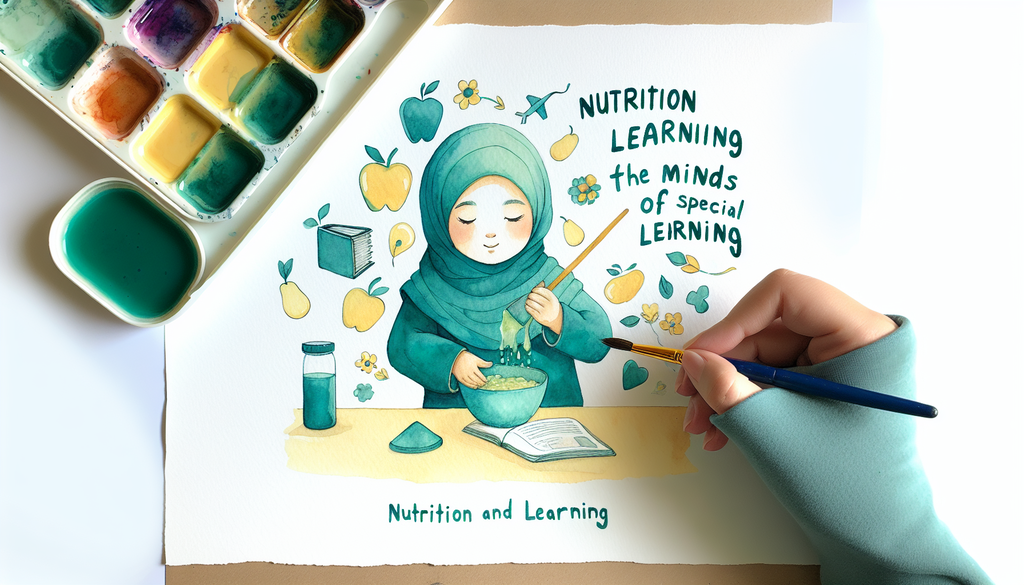Nutrition and Learning: Feeding the Minds of Special Needs Children

As parents and caregivers, we understand that nurturing our children involves more than just providing a safe and supportive environment. It extends to feeding them with the right nutrition to promote their overall development and enhance their learning capabilities. This is particularly true for children with special needs who often require a well-calibrated diet to meet their unique physiological, developmental and psychological needs. In this post, we explore how nutrition plays a crucial role in the learning and development of children with special needs.
The Importance of Nutrition for Learning
Just as a car needs fuel to run effectively, the human brain needs essential nutrients to function optimally. The influence of diet on cognitive development and educational performance cannot be overstated, especially for children with special needs [^1^]. Many special needs conditions, including Autism Spectrum Disorder, ADHD, and Down Syndrome, are impacted by dietary factors [^2^]. For instance, children with ADHD may be more sensitive to sugars and additives, leading to increased hyperactivity while others might have difficulty absorbing certain nutrients, necessitating dietary adjustments.
Picky Eating and Special Dietary Needs
Children with special needs may often exhibit picky eating habits or may have dietary restrictions due to allergies, sensitivities or medication interactions. These factors may limit their nutrient intake, further emphasizing the significance of a carefully planned diet. Addressing these nutrition challenges often involves working closely with dietitians, doctors, and therapists. Here are some useful strategies to manage and overcome these challenges:
1. Behavioral and Occupational Therapy
For picky eaters, working with a therapist experienced in dealing with food aversions can be a game changer. The goal is to reduce mealtime stress, make eating enjoyable and gradually include a variety of foods. You can read more about positive behavior reinforcement strategies in our previous post Promoting Positive Behavior: Reinforcement Strategies that Work.
2. Consultation with a Dietician
Understand your child’s unique nutritional needs with the help of a registered dietician. They can devise an individualized meal plan, suggest nutritional supplements, and guide you through managing any food allergies or sensitivities.
3. Parental Education and Support
Become a student of your child’s nutritional needs. There are a wealth of resources available to support you in becoming a nutrition-savvy special needs parent. Joining parents’ communities and support groups can provide practical advice and much-needed encouragement.
Meal planning for special needs children
Planning meals for a special needs child can be both a science and an art. Here are a few practical tips:
-
Explore color, texture, and taste diversity. Creating a colorful plate with a variety of textures and tastes can make mealtime interesting and more appealing to children who might otherwise be picky eaters.
-
Practice mindful eating. Encourage your child to focus on the food - its taste, texture and aroma. Slowing down and savoring food can increase the enjoyment of eating and reduce mealtime stress.
-
Be patient and positive. Some changes may take time and that’s okay. Infusing positivity and encouragement into meal times can help your child develop healthy eating habits.
Remember that every child is different. A diet that works for one might not work for another. The key is patience, experimentation, and consultation with a nutritional expert to find the right nutritional balance for your child.
Ensuring optimal nutrition is a crucial aspect of creating a nurturing environment conducive to development and learning. By being mindful of their dietary needs, we can enhance not just the physical health of special needs children, but also their cognitive, social, and emotional growth.
Ways to encourage eating can be found in our post Strategies for Promoting Inclusion in Physical Education and creating a safe environment for leting them eat at their own pace is mentioned in Sensory-Friendly Learning Environments: Tips for Schools and Homes.
For more resources on handling common challenges and enhancing the development of children with special needs, explore our blog archives.